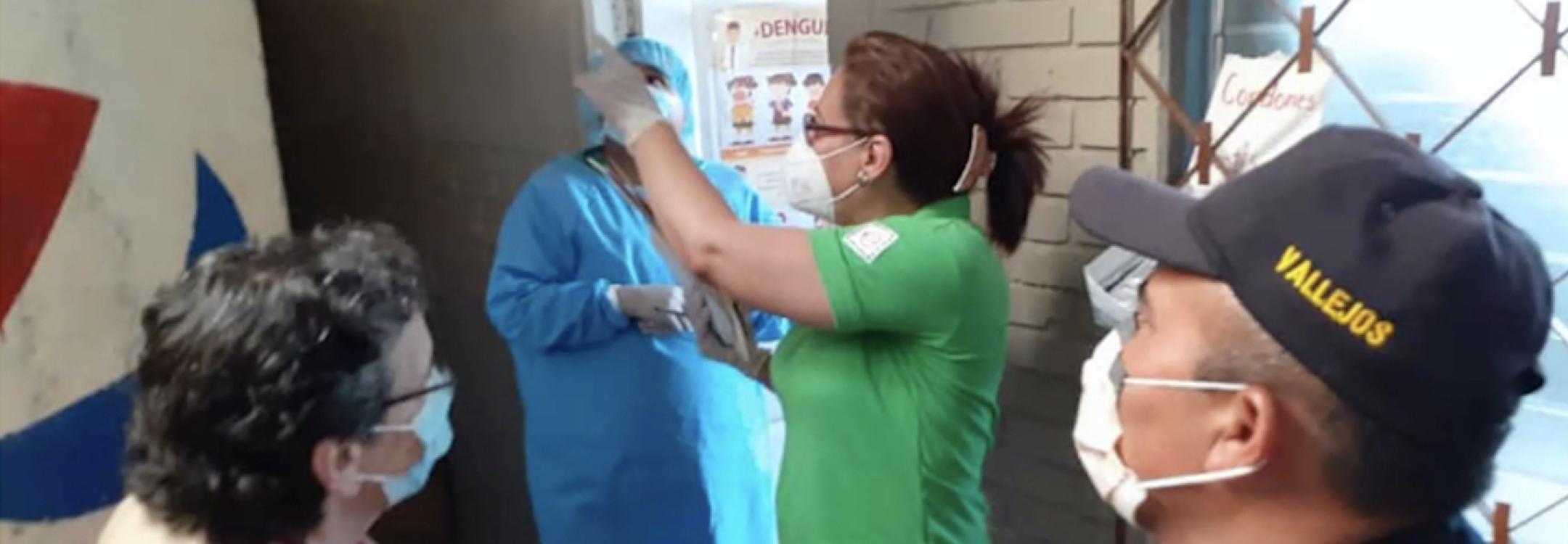
“The COVID-19 pandemic is leading to an escalation of torture and ill-treatment worldwide”: this is the warning sent unanimously by the United Nations four Anti-torture mechanisms on the occasion of the International Day in Support of Victims of Torture. Indeed, while the pandemic and the restrictive measures are affecting all of us, they are impacting disproportionately persons in situation of vulnerability and persons deprived of liberty.
To mark the International Day, the APT and the Office of the High Commissioner for Human Rights (OHCHR) organised a public webinar on “Combatting torture and ill-treatment in times of COVID-19: testimonies from the ground”. It gathered four civil society organisations coming from Brazil, Jordan, the Philippines, and South Africa; and the four UN Anti-Torture mechanisms: the UN Special Rapporteur on Torture and the Chairpersons of the Committee against Torture, the Subcommittee for the Prevention of Torture and the UN Voluntary Fund for Victims of Torture. The webinar attracted a lot of interest, as more than 260 online participants and 165 Facebook live followers participated in the discussion. It was recorded and is accessible here.
The online discussion was divided into two thematic sessions, dealing with treatment of persons deprived of their liberty in times of COVID-19, and the impact of restrictive measures taken by States.
During the first session, testimonies from Medical Action Group (the Philippines) and Lawyer for Human Rights (South Africa) highlighted abuses of power and excessive use of force, sometimes even ‘killings’, by the police in enforcing the lockdown measures. Confronted with new offences and new police powers, NGOs responded with creativity and solidarity, maintaining hotline and litigation as well as developing new online advocacy strategies. The UN Special Rapporteur on Torture stressed the key principles that any restriction measure has to respect: lawfulness, necessity, and proportionality. He also reminded about the absolute prohibition of torture. When “war” is the reference framework, the overemphasis is on security rather than on safety. This is also demonstrated by the disproportionate impact of the emergency measures on persons living in poverty and marginalisation, in a form of “spatial apartheid”. The Chair of the UN Voluntary Fund for Victims of Torture (UNVFVT) emphasized the importance of sustainable support and protection measures for victims of torture to ensure resilience. A survey of all UNVFVT grantees showed that they need additional emergency funds to continue support victims.
The second thematic session focused on the situations in places of detention and on the impact on persons deprived of liberty in times of COVID-19. The Centro de Defensa de Criança e do Adolescente do Ceara (Brazil) testified about the additional risks for detainees created by structural overcrowding, violence and unhygienic conditions. NGOs strive to continue to provide legal, social and psychological assistance in these conditions. The Chair of the UN Committee against torture also recommended States to adopt a three-pronged approach in places of detention: “protecting detainees against the infection; containing the spread among detainees; and respecting the equivalence of health care”. In Jordan, the Centre for Victims of Torture (Jordan) responded to uncertainty and trauma by promoting self-care and proposing therapy. Last but not least, the Chair of the UN Subcommittee on Prevention of Torture reminded how essential is monitoring the implementation of measures in prisons and other places. He stressed the importance of dialogue and liaison with the authorities to make sure ”no one is left behind”.
The COVID-19 pandemic is exacerbating structural problems in the institutions and in societies. In her Opening Statement to the Human Rights Council on 30 June 2020, the High Commissioner Ms Bachelet called for “for leadership grounded in clarity, evidence and principle to protect the most vulnerable members of society, and to address the profound inequalities that are accelerating the pandemic's incidence and impact.” We have to remain vigilant and continue to join forces in the coming months to make sure that emergency and restrictive measures never amount to torture or ill-treatment.